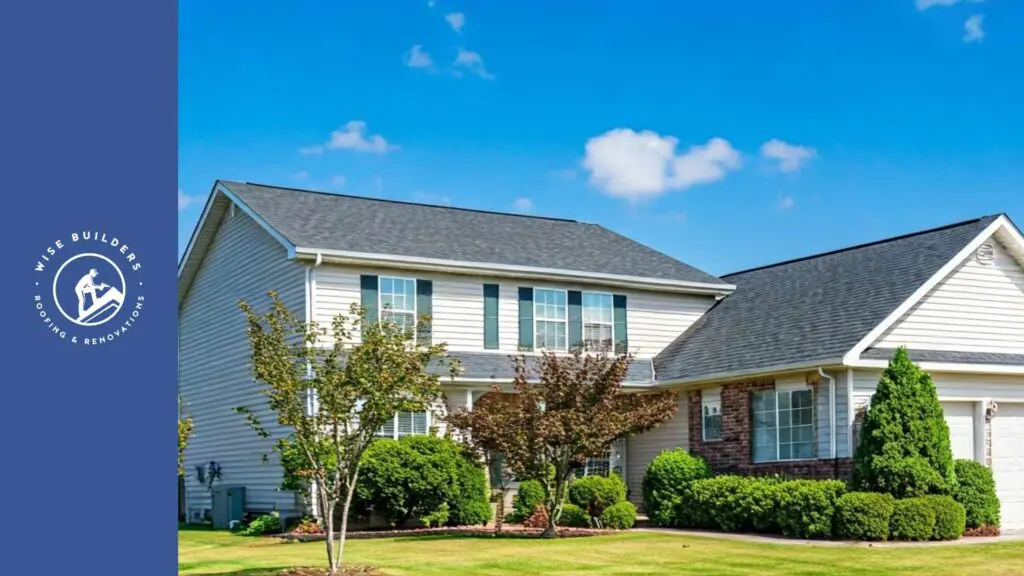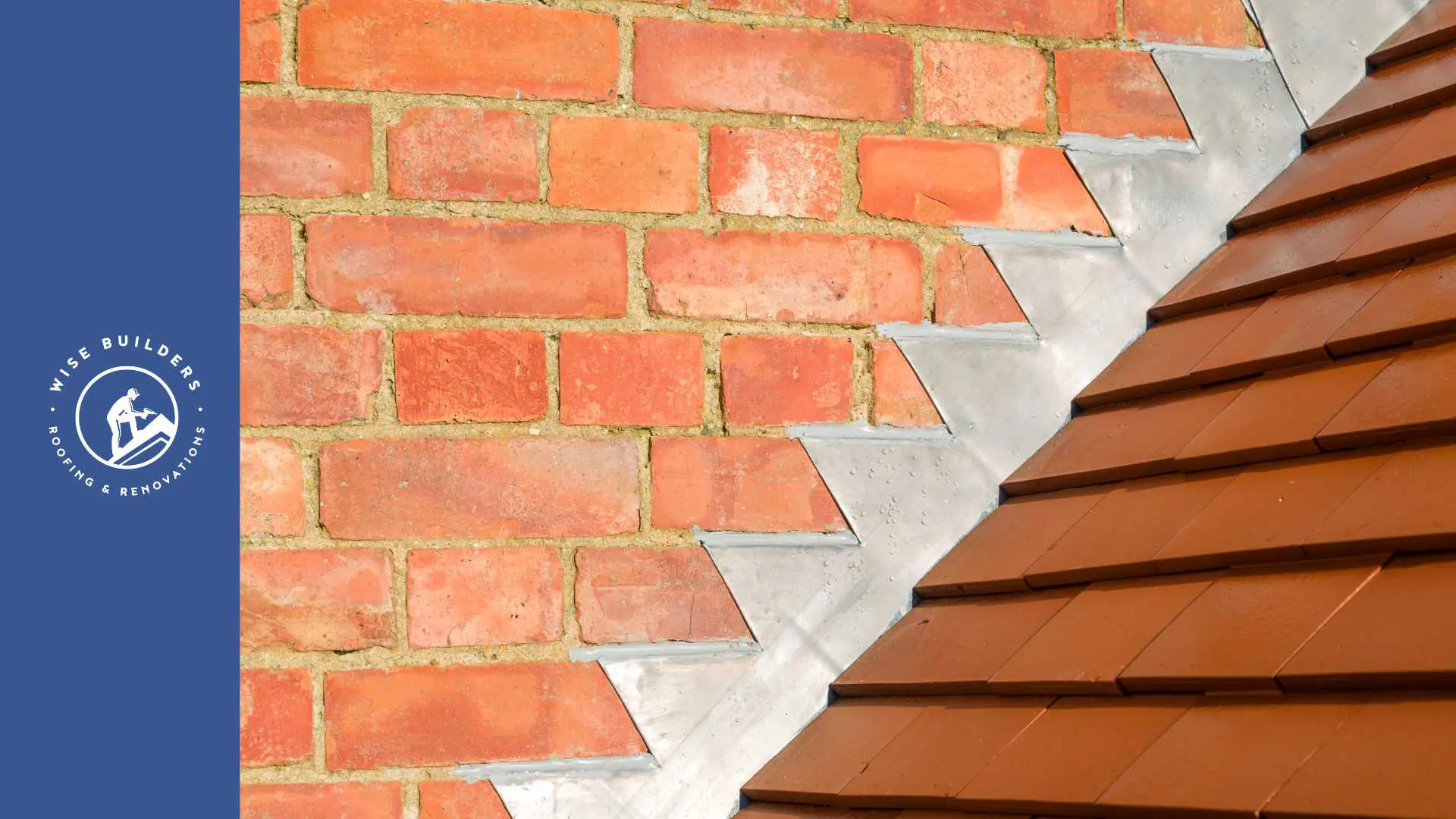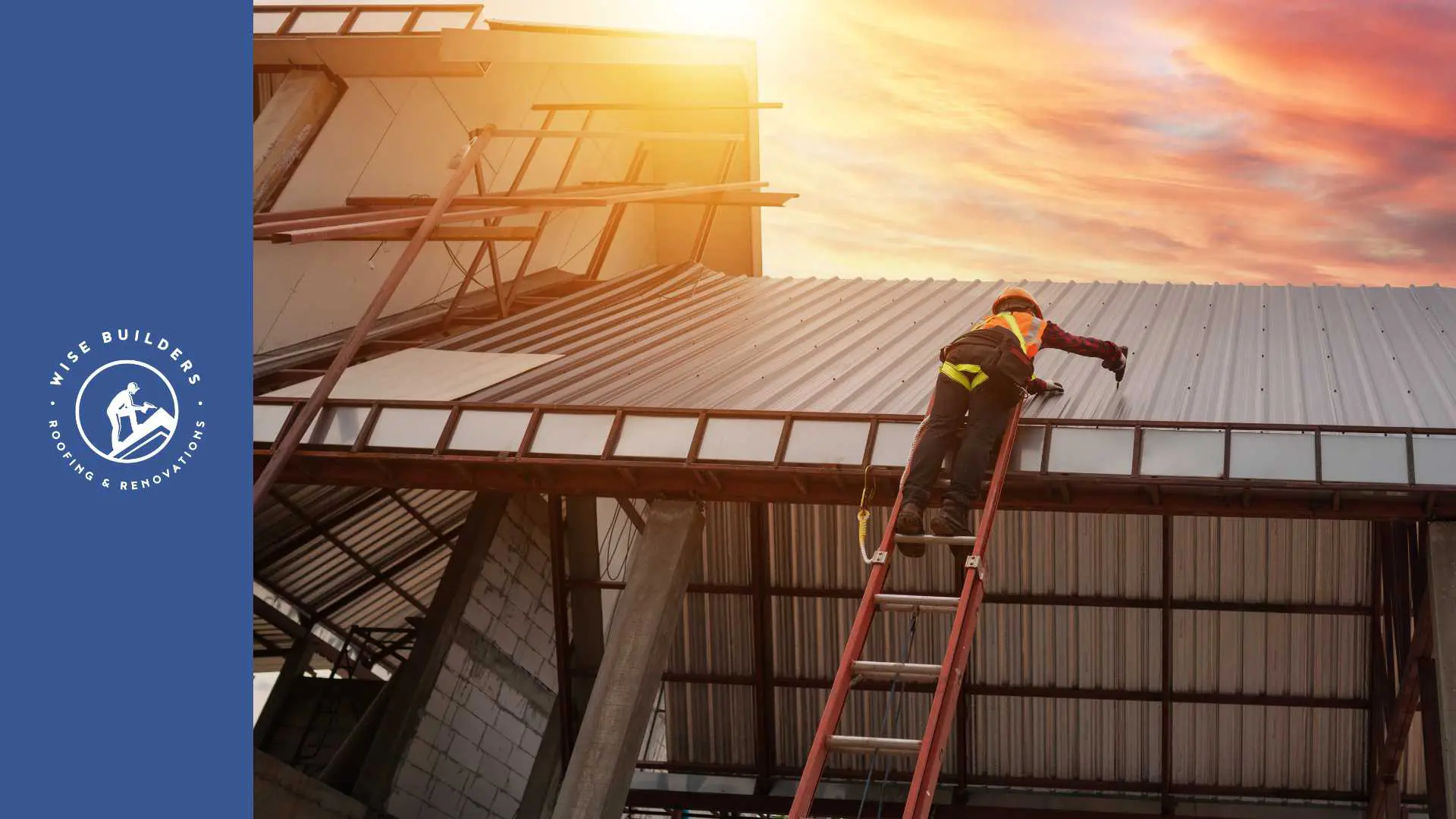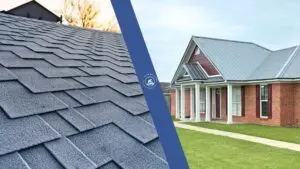
Key Highlights
- Generally, roof replacements for primary residences are not tax deductible.
- However, roof replacements on rental properties can be depreciated and deducted over time.
- Energy-efficient roofs or solar shingles might qualify for tax credits.
- If your roof needs replacement due to a federally declared disaster, you may be eligible for a casualty loss deduction.
- It’s essential to keep detailed records of all home improvement costs for tax purposes.
Introduction
As a homeowner, you understand that a roof replacement job is a significant home improvement project. Given the cost of a new roof, it’s only natural to wonder if you can reap any tax benefits from this investment. While a tax deduction is not typically an option for roof replacements on your primary dwelling, there are situations where you can benefit from tax credits or deductions related to your roofing project.
Understanding Tax Deductions and Credits for Roof Replacement

Before exploring the specifics of roof replacement and taxes, it’s crucial to grasp the difference between tax deductions and credits. Both can help reduce your tax liability, but they do so differently.
Understanding these differences can help you maximize your tax savings. Remember, it’s always advisable to consult a tax professional for personalized guidance on your specific financial situation.
Definition of Tax Deduction vs. Tax Credit
A tax deduction, in simple terms, reduces your taxable income. This means that the amount of income subject to taxation decreases, resulting in a lower tax bill. Think of it as a discount on your taxable income. The value of a tax deduction depends on your tax bracket. For instance, a $1,000 deduction saves you more if you’re in a higher tax bracket.
On the other hand, a tax credit directly reduces the amount of money tax you owe. This means you deduct the credit from the total tax liability calculated on your tax return. Unlike deductions, which vary in value based on your tax bracket, credits offer a dollar-for-dollar reduction in your tax bill.
So, if you have a $1,000 tax credit, you reduce your tax owed by $1,000, regardless of your income level or tax bracket.
Criteria for Roof Replacement Tax Deductions
In most cases, the IRS considers a roof replacement a significant home improvement. to an existing space. This classification stems from the fact that a new roof adds value to your home, extends its useful life, and may even adapt it to new uses. Unlike repairs, which typically address minor issues and maintenance, home improvements involve substantial upgrades or additions.
While home repairs might be tax deductible in specific scenarios, home improvements on your primary residence generally don’t qualify for deductions. This rule applies to most roofing projects.
However, exceptions exist. If you use a portion of your home exclusively and regularly for business purposes, such as a home office, you might qualify for deductions related to that specific area. This includes expenses for maintaining and repairing the roof covering the business section of your home. However, this only applies if these costs are directly tied to your business operations.
Eligibility for Claiming Roof Replacement on Taxes
Navigating the intricacies of tax deductions related to home improvements can be complex. It requires a clear understanding of IRS regulations and how they apply to your specific circumstances. When considering roof replacement, it’s crucial to determine if your project qualifies for any tax benefits.
Factors that impact eligibility include the property type – whether it’s your primary residence or a rental property – and the nature of the roof replacement, like energy-efficient upgrades or repairs necessitated by a natural disaster.
When is Roof Replacement Considered a Capital Improvement?
The IRS views a roof replacement as a capital improvement when it significantly enhances your home’s value, prolongs its useful life, or adapts it for new uses. While this categorization doesn’t necessarily make the expense immediately tax deductible, it impacts your tax liability when you eventually sell the property.
Capital improvements are added to your home’s cost basis, reducing the capital gains tax you might owe upon selling. For instance, if you purchased a home for $200,000 and later invested $10,000 in a new roof, your cost basis becomes $210,000. This higher cost basis can lead to lower taxable gains when you sell your property.
However, claiming these adjustments requires meticulous record-keeping of all home improvement costs, including receipts, invoices, and any relevant documentation.
Impact of Roof Replacement on Home Value and Taxes
Investing in a new roof offers numerous benefits, including enhanced curb appeal, improved energy efficiency, and a significant boost in home value. Although it doesn’t directly translate into immediate tax deductions, a new roof positively impacts your property taxes.
Local governments typically assess property taxes based on your home’s assessed value, which reflects its market worth. A new roof enhances your home’s market value, potentially leading to an increase in property taxes. However, the amount of the increase depends on various factors, such as your location, local tax rates, and the overall housing market.
While increased property taxes might seem undesirable, remember that a new roof ultimately adds value to your home. It’s an investment that pays off over the long term.
Specific Cases Where Roof Replacement Costs are Deductible

While roof replacements for primary homes usually don’t qualify for immediate tax deductions, certain scenarios allow for deductions. These exceptions typically involve situations where a portion of your property generates income or experiences damage requiring immediate repair or replacement.
For example, landlords renting out their property can deduct expenses related to maintaining and repairing the rental property. Similarly, if a natural disaster damages your roof, requiring a replacement, you might be eligible for deductions related to the casualty loss.
Roof Replacements for Rental Properties
Investing in a roof replacement for your rental property allows you to take advantage of depreciation deductions spread over several years. Depreciation enables you to recover the cost of the new roof over its useful life, reducing your tax liability.
Claiming depreciation deductions on rental property requires adherence to a specific set of rules defined by the IRS. For roofing, the IRS typically uses a depreciation period based on the property type and the roof’s expected lifespan.
Proper documentation, including invoices for the roof replacement, labor costs, and any permits required for the job, is crucial for claiming depreciation deductions. Maintaining meticulous records ensures you can accurately calculate and substantiate your deductions when filing your taxes.
Energy-Efficient Roofing and Tax Credits
Opting for an energy-efficient roof not only reduces your carbon footprint but can also lead to significant tax benefits in the form of federal tax credits. These credits provide a dollar-for-dollar reduction in your tax liability, making energy-efficient improvements more financially appealing.
To qualify for these credits, your new roof must meet specific energy-efficiency standards set by the federal government. These standards typically relate to factors like energy star-certified products, solar reflectivity, and thermal insulation. These criteria ensure that your roof effectively reduces energy consumption and contributes to a more sustainable environment.
The Residential Energy Efficient Property Credit and the Federal Solar Tax Credit offer substantial financial incentives for homeowners who invest in energy-efficient upgrades. The Residential Energy Efficient Property Credit is specifically designed to encourage homeowners to install energy-efficient systems, including certain types of roofing. For homeowners who opt for solar power, the Federal Solar Tax Credit offers a significant tax break for installing solar panels or solar shingles on their roofs.
Conclusion
In conclusion, understanding the tax implications of roof replacement is crucial for homeowners. Knowing the distinction between tax deductions and credits, along with eligibility criteria, can potentially save you money. Consider factors like whether the replacement is a capital improvement and its impact on home value and taxes. Specific cases, such as rental properties or energy-efficient roofing, may offer deductible options. Stay informed to make the most of potential tax benefits when replacing your roof. If you have any questions about tax deductions or credits related to roof replacement, consult with a tax professional for personalized guidance.
At Wise Builders, We ensure our clients receive the best possible outcomes. Our commitment to quality workmanship and customer satisfaction is unwavering, making us the top choice for residential Roofing services in our community.
Frequently Asked Questions
Is roof replacement tax deductible for my primary residence?
A roof replacement for your primary residence isn’t typically tax deductible. However, consult a tax professional for personalized advice relevant to your situation during tax time.







